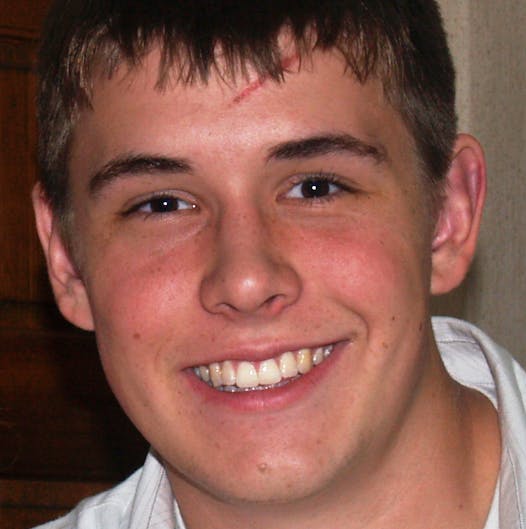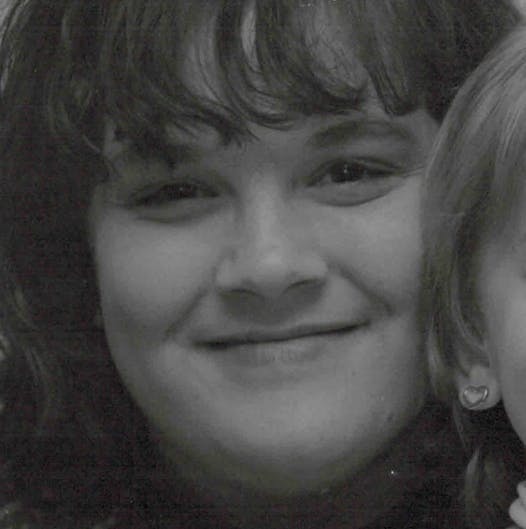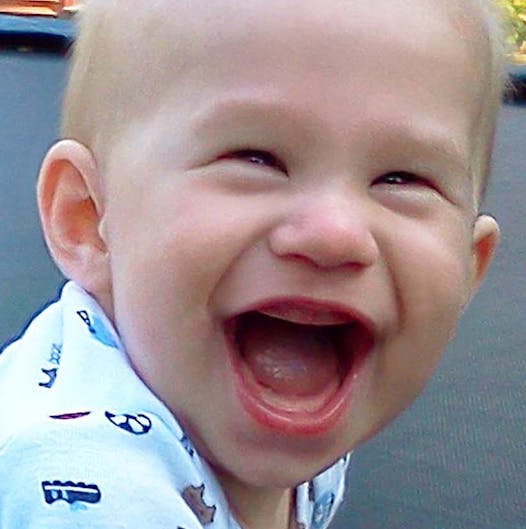Lying on a hospital bed, 6-year-old Abbey Taylor gave her parents a mission.
She looked up at her father, Scott, and asked if she would be on television.
Abbey loved being in the spotlight, but this wasn't about entertainment. She wanted to be on the news to tell her story so no other kids would be hurt like she had been. While playing in a pool, she was disemboweled by the suction of a faulty drain. Nine months later, after 16 surgeries and a triple organ transplant, Abbey died.
"Our future was laid out for us before we even knew it," said Scott Taylor, who with his wife, Katey, took Abbey's mission to heart. While grieving for their little girl, they built Abbey's Hope, a foundation that works to make swimming pools safer.
After the horrifying loss of a child, some Minnesota parents are using their grief to fuel a drive for change. Inspired by Patty and Jerry Wetterling, who became known nationwide for their advocacy for missing children after their son Jacob was kidnapped in 1989, these parents fight passionately to enact criminal justice reforms, establish tighter safety guidelines or raise awareness and money in their children's names.
No matter how hard it is to tell and retell their stories, they testify before the Legislature and speak in front of cameras because, by doing so, they are keeping their children alive. Working tirelessly amid crushing grief, these parents-turned-advocates can make a difference, though sometimes at a cost to themselves.
"It's not at all uncommon that these families, through their pain and despair, become pillars of strength when it comes to protecting families and kids," said Bob Lowery, vice president of the missing children division at the National Center for Missing and Exploited Children.
Laws and organizations linked to children are some of the most recognizable because they capture the sympathy of the public: Amber Alerts, Megan's Law, Mothers Against Drunk Driving. And, of course, the Jacob Wetterling Crimes Against Children and Sexually Violent Offender Registration Act, a 1994 federal law named for the Minnesota 11-year-old whose body was recovered this month, 27 years after he was kidnapped.
Patty Wetterling was instrumental in getting that law and others passed through her work founding the Jacob Wetterling Resource Center and as a chairwoman of the National Center for Missing and Exploited Children.
"The changes we've seen when it comes to protecting children have been in large part thanks to the Patty Wetterlings of the world," Lowery said.
In Minnesota especially, the Wetterlings have become beacons of inspiration to other grieving families.
Just two months after Abbey's death, Scott and Katey Taylor saw the Legislature unanimously pass the Abigail Taylor Pool Safety Act, imposing stricter guidelines for the inspection and maintenance of pool drains.
"There are many ways you can choose to react, and one of those is you can just withdraw, let the hurt and depression take over your very soul," said Scott Taylor of Edina, "or you can choose to use that to motivate you to do something to protect other children, something that gives the suffering some value. It helps us to know that Abbey didn't die in vain."
Striking a delicate balance
There is no single predictor for how a parent will react to the loss of a child. But one outcome is "post-traumatic growth," or "a positive change that happens in people as result of a struggle to cope with some traumatic circumstance or event," said Richard Tedeschi, a psychologist and post-traumatic growth researcher at the University of North Carolina in Charlotte.
Tedeschi estimates that half to two-thirds of the bereaved experience some growth after a loss, and those who go on to perform advocacy work often fall into two categories. One group is made up of those who receive a lot of support and want to pay it forward to prevent others from going through what they did. "The flip side," he said, is people who didn't find the resources they needed, and "want to fill a gap in the support system."
Alan Pedersen, executive director of Compassionate Friends, an international organization for families who have lost children, said many of the families he has met say they find a new purpose from their loss.
"This tragedy took them in a direction where maybe they always wanted to start a business or write a book — it kind of made them fearless, and gave them the motivation to take the tragedy and make something special out of it," Pedersen said. "It made their life mean more."
At the Center for Grief, Loss and Transition, a program of Stillwater-based Family Means, psychologists help grieving parents "develop a narrative or story about their loss," said Molly Ruggles, program coordinator.
"As you talk about something more and more, it is one really important way of processing the emotional content that goes along with that loss," she said.
Finding the strength to talk about the loss of a child can do more than help the family; it can help legislators win over the public with a sympathetic face and story, said University of Minnesota political scientist Andrew Karch.
"Maybe a legislator had an idea, and when you're able to attach this to a story, their job becomes easier," Karch said. Naming a bill after a child, in particular, "is very helpful in putting programs on the agenda and showing constituents that lawmakers are being responsive to these tragedies." It also makes it difficult for opponents to express their opposition "without seeming callous or cold to these parents who have suffered something unimaginable."
Earlier this year, Gov. Mark Dayton signed Drake's Law, which increases the maximum penalty for vehicular homicide to 15 years for repeat drunken drivers. It was named after Drake Bigler, a 5-month-old boy killed in a car accident in 2012. The driver who crashed into the family vehicle had two previous DWI convictions, but was sentenced to just four years in prison.
"When you've got a face in front of a bill, it just has more impact," said Drake's father, Brad Bigler, men's basketball coach for Southwest Minnesota State University in Marshall. "Anytime we were in front of the committee, it was pretty much a slam dunk."
He doesn't mean to make it sound easier than it was. Testifying, and repeating the story of the accident that reshaped their family, was "exhausting," Heather Bigler said.
"You kind of have to relive the horror of it, keeping in the back of your mind that it could help make a difference," she said. "That helps drive why we have done what we've done."
Though effective, there can be a drawback to lawmaking amid a high-profile tragedy that pulls on the public's heartstrings — what political scientists call a "focusing event," Karch said.
These charged situations can lead to quick legislative action, sometimes before all of the implications can be thought through. For example, California's "three strikes" law giving life sentences to repeat offenders has been under continual re-evaluation since it was enacted in 1994 because of its contribution to high inmate tallies and prison costs.
"Families' stories bring attention to issues that deserve it," Karch said. "At the same time, they can lead to unintended consequences. One particularly horrible episode may not be representative of trends in crime, so it's a difficult balance to strike."
Helping someone else's child
Parents who throw themselves into policymaking risk more than the pain of publicly revisiting their grief, Ruggles said. If the end result is not what they had hoped, "it could add to the loss," she said.
Still, many grieving parents sign up for journeys that have no foreseeable end.
Joni Whiting of Jordan immersed herself in online research about cures after her 26-year-old daughter, Stephanie Whiting Stradinger, died of melanoma in 2003. Despite Whiting's initial objections, Stephanie had used marijuana to ease her pain and improve her quality of life in her last months. When Whiting came across an article six years later about a medical marijuana bill heading to the Legislature, she found a cause to channel her energy into.
The first time she testified in front of the Senate, "my knees were knocking together, I was so terrified," she said.
Minnesota legalized medical marijuana in 2014, thanks in part to Whiting's emotional testimony over five years. But "the cost" of her advocacy, she said, was "enormous."
"It hurts every time," she said. "I relive it every time."
Whiting's battle isn't over. She trains other parents to testify on their own children's behalf. And she wants to see the laws relaxed further, so patients can access larger dosages while fighting their diseases.
"When a parent loses a child, they lose part of themselves," said Whiting, 61. "And I don't ever want another mother to have to go through what I did."
Sheryl Hill describes the pain of losing her 16-year-old son, Tyler Hill, as a "sore spot," a wound that reopens every day that she fights for stricter regulations on study abroad programs, like the one Tyler was in when he died in 2007 in Japan from altitude sickness and other medical needs that went untreated.
"I'm touching that pain point every day when I hear from families whose kids die these preventable deaths, who are living everything I've lived through," said Hill, of Mound.
She and her husband, Allen, founded Depart Smart, an organization that raises awareness about student travel safety.
"The reward and the joy comes from knowing that I couldn't save Tyler and Patty couldn't save Jacob," she said, "but we could save another."
She added, "It's that healing salve on the wound that is the joy in the work that I do."
Sharyn Jackson • 612-673-4853
@SharynJackson
Rom-com author Emily Henry knows the secret to having a healthy relationship with love

Photographer alleges he was forced to watch Megan Thee Stallion have sex and was unfairly fired
Phish fans are famously dedicated. What happens when they enter the Sphere?
Minneapolis will bid to host Sundance Film Festival





